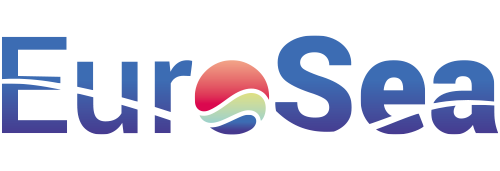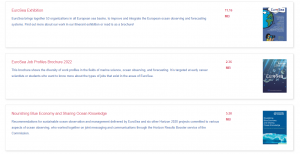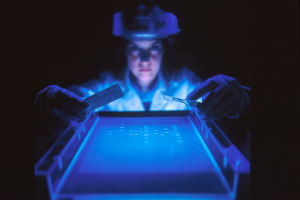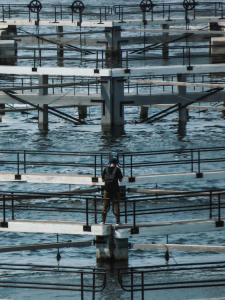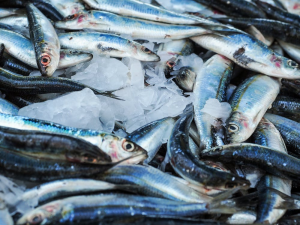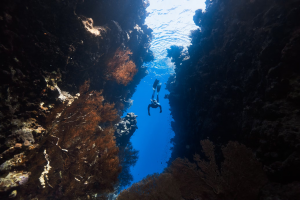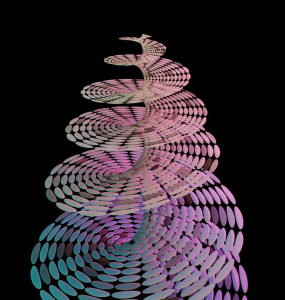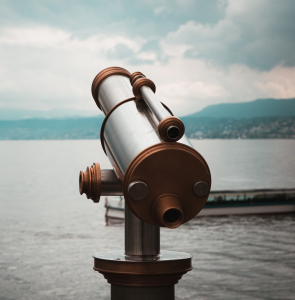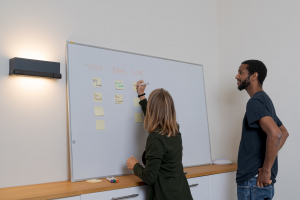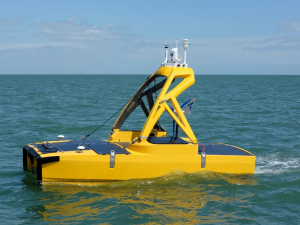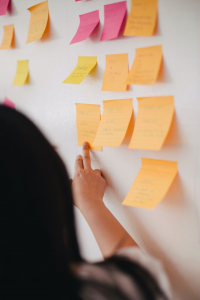Awareness raising
Communication and outreach through diverse tools that showcase EuroSea’s core messages to stakeholders
EuroSea's emphasis on an integrative communication strategy seeks to bridge the gap between scientific developments and stakeholder engagement. By leveraging various tools and platforms, they intend to make oceanic research more accessible and actionable for a wider audience.
Training and support for end users, scientists, and local site crew for new sensor system deployment, maintenance, and use
Training and Support: Practical training is provided to end users, enabling them to set up, operate, maintain, and interpret the data products effectively. Traditionally, there may have been a gap between the developers of marine and oceanographic equipment and the end-users. This gap can lead to inefficiencies in system deployment, maintenance, and utilization. By providing dedicated training solutions, the EuroSea project is addressing this gap, ensuring that all stakeholders can optimally utilize and maintain oceanographic systems.
Training aquaculture operators to use a new sensor system
Aquaculture, as an industry, is at the forefront of ensuring food security and supporting blue economy growth. The integration of advanced sensor systems in aquaculture has the potential to revolutionize operations, optimize production, and ensure environmental sustainability. However, the effectiveness of these sensor systems is contingent upon the operators' ability to effectively deploy, maintain, and interpret the data they provide. This initiative focuses on training operators to maximize the benefits of these new tools.
Training fisheries scientists in the use of data-limited stock assessment methods and CMEMS (Copernicus Marine Environment Monitoring Service) data in support of decision-making
Overfishing and mismanagement of marine resources are major concerns on a global scale. Traditional stock assessment methods often require vast amounts of data, which is not always available, especially for less-studied species or in regions with limited monitoring capabilities. The introduction of data-limited stock assessment methods, coupled with the usage of comprehensive datasets like CMEMS, provides a way forward for sustainable fisheries management even when detailed biological data is lacking.
Training the oceanographic community on the use and design of ocean indicators
The ocean plays a pivotal role in regulating the earth's climate, supporting biodiversity, and providing resources for human livelihoods. To understand the health and status of the oceans, indicators are critical. As we continue to witness unprecedented changes in the marine environment due to human-induced factors, the need to effectively measure, interpret, and respond becomes paramount. Training the oceanographic community on the use and design of these indicators ensures that research and policies reflect the most accurate, relevant, and timely information about the ocean's state.
Training oceanographic scientists on the development of new 4D mapping methods (machine learning techniques and data assimilation)
The constantly evolving nature of our oceans, combined with the exponential growth in available data, necessitates advanced analytical methods. 4D mapping captures the spatial and temporal complexities of marine systems, and with the integration of machine learning techniques and data assimilation, it provides dynamic insights into oceanic phenomena. By training oceanographic scientists in these state-of-the-art methodologies, we can foster a deeper, more dynamic understanding of marine environments, their changes, and their interactions.
Training oceanographic scientists on the design of multi-platform experiments and observing system simulation experiments (OSSEs)
The vastness and complexity of the world's oceans demand cutting-edge approaches to study and understand them. Multi-platform experiments provide a comprehensive means of collecting data from various perspectives, while Observing System Simulation Experiments (OSSEs) allow scientists to evaluate potential future observation systems. Training oceanographic scientists in these advanced methodologies ensures that research is both holistic and future-focused, facilitating deeper insights into the marine ecosystem and its intricate dynamics.
Recommendations on engaging with the next generation of stakeholders
The ongoing rapid environmental, technological, and societal changes have emphasized the need for more meaningful engagement with the next generation of stakeholders. This younger generation, being digital natives and showing increased awareness about global challenges, interacts and engages differently than previous generations. Traditional stakeholder engagement methods might not be as effective or relevant when addressing their unique perspectives and needs.
Training and improvement of professional skills focused on the emerging network of autonomous surface vehicles (ASVs)
The rise of autonomous surface vehicles in marine and oceanographic research has unlocked new frontiers in data collection and ocean exploration. However, this innovation demands specialized skills for deployment, maintenance, and data interpretation. By focusing on training for this emerging domain, the initiative aims to cultivate a workforce ready to harness the potential of ASVs to the fullest.
Trainings for the EuroSea consortium on Stakeholder Engagement, IPR (Intellectual Property Rights), and Effective Communication/Presentation
The trainings represent a concerted effort to standardize knowledge and practices among the EuroSea consortium members on critical non-technical aspects that influence the overall impact and success of research and development projects.
Workshops on ocean modelling and ocean observing
Ocean modelling and ocean observing are two critical components in marine science. While ocean observing is about collecting data from the marine environment, ocean modelling uses this data to create simulations and predictions about ocean behaviour. Historically, these two sectors have worked somewhat in isolation. The introduction of workshops aimed at bridging these two communities represents a significant advancement in collaborative marine science.
